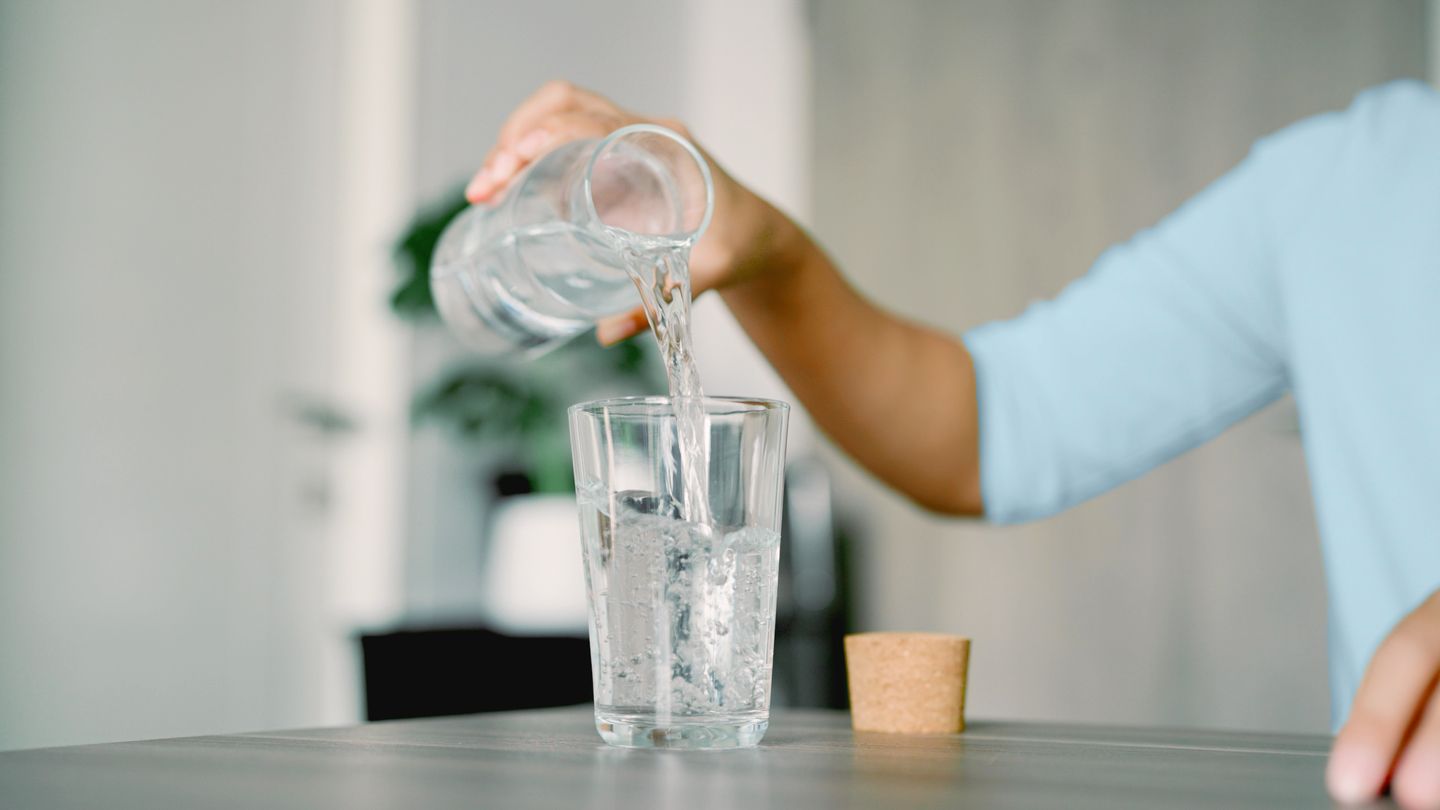Dietary Changes to Reduce Kidney Stone Risk
While a low-oxalate diet alone may not help prevent kidney stones, there are other ways you can modify your eating habits to reduce your risk.
1. Increase Water or Fluid Intake
Drinking more fluid increases the amount of urine you make and decreases the risk of dehydration, a risk factor for kidney stones.
If you’ve had kidney stones before, aim for 8 to 12 cups of water (2 to 3 liters) a day.
2. Eat Calcium-Rich Foods
Calcium from food combines with oxalates in the intestines, forcing oxalates into the feces instead of the urine and reducing the risk of developing calcium oxalate stones.
Aim for the recommended daily amount of calcium — 1,000 to 1,200 milligrams (mg) for most adults — from sources like dairy, soy, beans, fortified tofu, and green vegetables like broccoli and kale, Pearle says.
3. Follow a Low-Fat Diet
Eating too many fatty foods makes it easier for oxalates to form kidney stones. Reducing dietary fat is especially important if you have risk factors for kidney stones, such as intestinal malabsorption due to surgery or bowel diseases like Crohn’s or ulcerative colitis, Pearle says.
Unfortunately, research suggests this includes healthy unsaturated fatty acids, too.
One study found that each 10-gram increase in saturated fat intake per day was linked to 22 percent odds of kidney stones. The same increase in monounsaturated and polyunsaturated fat intake was linked to 10 percent and 21 percent higher odds, respectively. More research is needed, though.
4. Reduce Sodium
A high-sodium diet increases the amount of calcium in the urine, which can trigger kidney stones.
Following dietary guidelines for sodium intake — no more than about 1 teaspoon (2,300 mg) a day — can help lower your risk.
However, keep in mind that most packaged and restaurant foods already have sodium added to them, so you’ll have to account for that, too.
5. Limit Added Sugars
Limiting added sugars can help prevent kidney stones by reducing the amount of calcium excretion in the urine, Pearle says.
While this may not have as big an impact as other preventive measures, it can still play a role in kidney stone formation, Pearle adds.
6. Cut Back on Animal Protein
Eating too much protein from animal sources can increase oxalate concentrations in your urine and increase the risk of kidney stones.
You can reduce your risk by limiting your meat intake, including red and processed meat as well as poultry and fish, to no more than 8 ounces a day.
7. Avoid Vitamin C Supplements
While the vitamin C you get from foods doesn’t increase the risk of kidney stones, taking vitamin C supplements may increase oxalate levels in your urine and lead to kidney stones. Most people get all the vitamin C they need from foods.
Read the full article here




